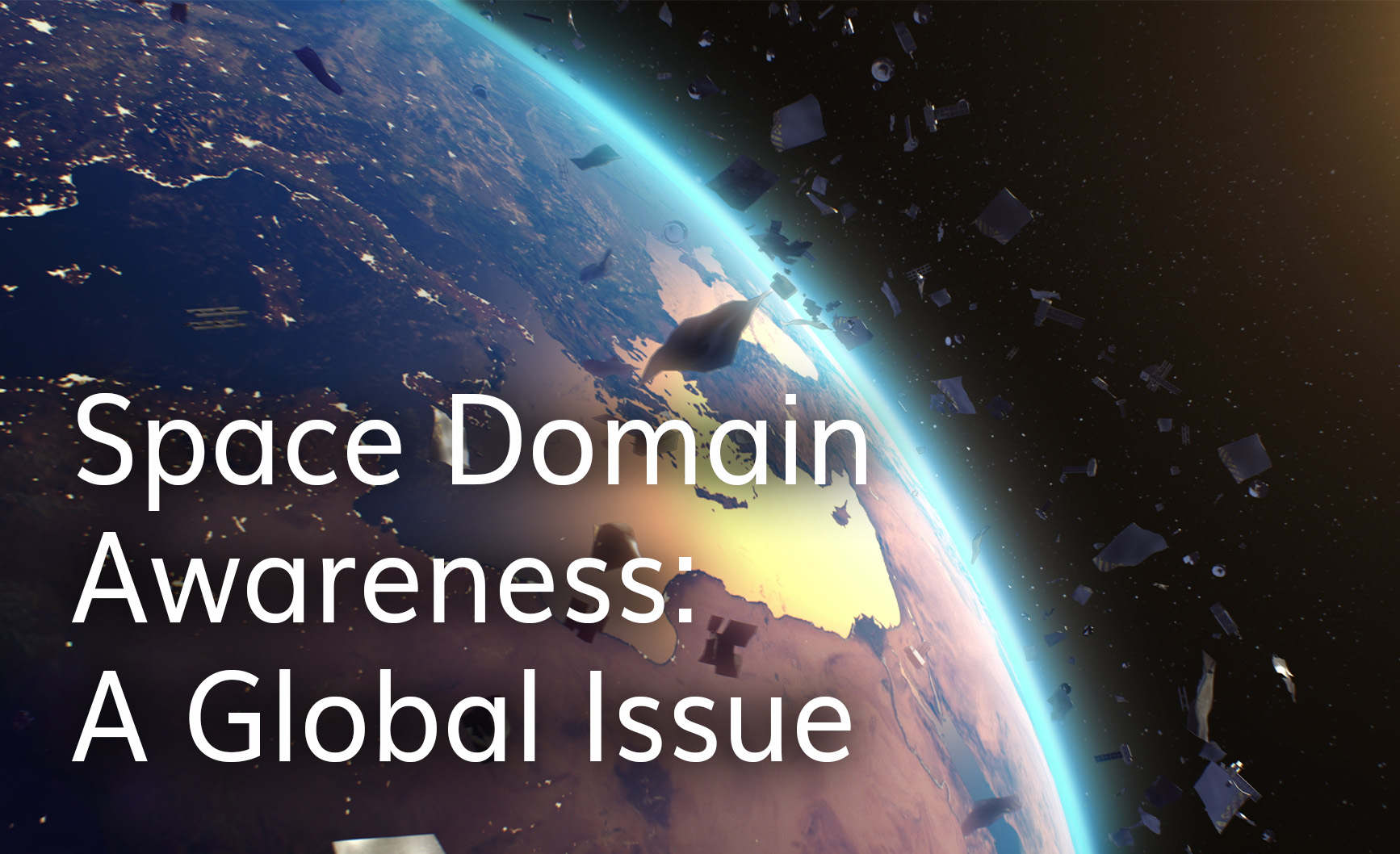The space industry is growing exponentially and the need for all space users to operate in a responsible way is greater than ever. Unlike land or sea mass on Earth, or even airspace, space is a global domain, and no one country or organization can fully regulate and monitor it. The industry currently relies on both government, and commercially provided space situational data to track satellites, dangerous debris, and military action in space. All of these systems have however not developed at the same pace as the space industry has expanded. This is an issue, not just because of the need to track and avoid an increased number of functional satellites in space, but also because as activity increases, so does the volume of debris in orbit. This debris also has to be identified, tracked and avoided, and the smaller the debris, the more difficult it is to track.
The issue is further compounded because the consequence of any kind of collision in space would be difficult to contain with worldwide impact. The result would be masses of new pieces of debris in orbit that would also need to be tracked. A worst case scenario would be a chain reaction resulting in more and more debris, and further collisions, eventually rendering space too unsafe to access because the probability of a collision would be too great.
Importance of collaboration
The fact that this issue impacts all space users and is contributed to by all space users, makes it a shared, global problem, requiring a shared and collaborated response. Effective space domain awareness requires international cooperation and information sharing, and governments, military organisations, and commercial companies, all have a role to play in this. It is now easier than ever to launch satellites so there are a lot of relatively new players in the industry. Research by Earthsky found that 75 different countries have at least one satellite orbiting Earth. While there is an expectation that all space users ensure that their satellites are managed responsibly from initial launch to decommission in order to avoid creating debris, this in is itself is not enough. This is why there is a need for a regulatory response to the issue that countries worldwide are willing and able to engage with.
Collaboration is needed not only to help to reduce the creation of new debris, but also to ensure in-orbit safety by improving both orbit determination and the tracking of small objects. Better data sharing around the positioning and orbit of satellites is also required.
Improved tracking capabilities
Despite the fact that space domain awareness has not developed at the same pace as the industry has expanded, there has in recent years, been some major technological developments. Sensor technology and the application of data fusion have both helped to significantly improve space situational awareness, making predictions much more accurate.
Another key area of development that is making a big difference is advanced AI and machine learning algorithms. These tools can be used to automate the process of detecting and tracking objects in space, reducing the risk of human error and increasing the efficiency of the monitoring process. They can also be used to analyse large amounts of data and identify patterns and trends that would be difficult for humans to detect. One example of advanced AI and machine learning in space awareness is the use of deep learning algorithms to identify and classify objects in space from sensor data. This allows for more accurate and efficient identification of objects and reduces the risk of false alarms.
Anti-satellite testing
One major area to address if we are to effectively manage space debris and improve space domain awareness is anti-satellite testing. According to a report by the Center for Space Standards and Innovation, the destruction of the Chinese Fengyun-1C spacecraft in 2007 produced at least 2,087 pieces of debris large enough to be routinely tracked, and a further 35,000 pieces of smaller debris. The recent Russian ASAT (2021) reportedlyresulted in around 1,783 new pieces of debris being tracked, which are likely to be a problem for decades to come. Already the ISS has had to carry out a manoeuvre to avoid a potential collision with a piece of debris from the Russian ASAT. Both the US and the UK have since announced that they will not carry out destructive, direct-ascent anti-satellite testing, and while this is a step in the right direction, it is not enough. We need to work towards an international agreement to
restrict ASAT testing because of the danger it poses for the entire space economy.
Navigating the way
Effective space domain awareness is critical for ensuring the safe and efficient use of space, protecting assets in orbit and on earth, and advancing our understanding of the universe. However, achieving it requires international cooperation, broad collaboration across a wide range of disciplines and organizations, and effective information sharing. With the increasing number of objects in space, the need for effective space domain awareness is becoming more urgent. Without it, the very sustainability of human space exploration and activity is in jeopardy.
Join us in Washington at Satellite 2023, where our Chairman, Joe Chan, will join a panel session about why space domain awareness is vital if we are to protect assets in orbit and on Earth. The panel takes place at 10:45am in Room 147, you can view the full agenda here.

